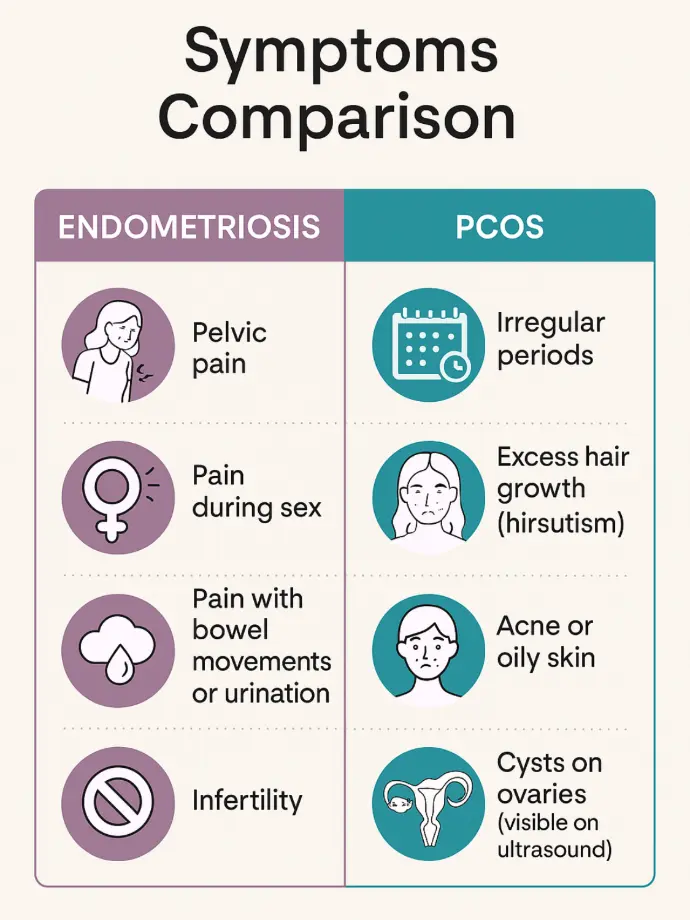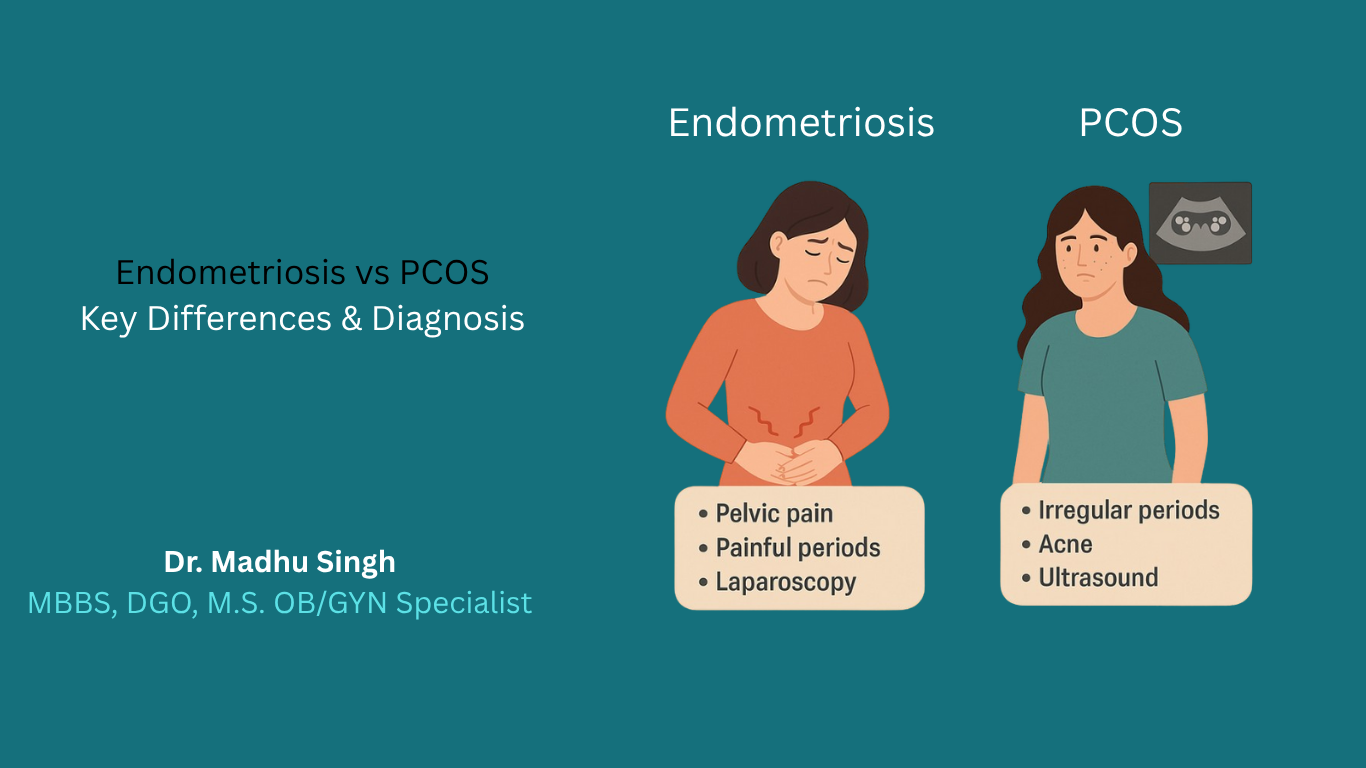Many women experience painful periods or irregular cycles, but sometimes these are signs of a bigger health issue. Two common conditions that affect women’s reproductive health are Endometriosis and Polycystic Ovary Syndrome (PCOS). Even though they share some symptoms, they are very different. Let’s talk about what they are, how to spot them, and how they’re treated.
“Understanding your body is the first step toward healing. Don’t ignore the signs—your health matters.” – Dr. Madhu Singh
What is Endometriosis?
Endometriosis happens when tissue similar to the lining of your uterus grows outside of it. This can cause pain, especially during periods. The tissue may grow on ovaries, fallopian tubes, or other organs. Since this tissue doesn’t belong there, it can lead to inflammation, scarring, and sometimes fertility issues.
Common symptoms:
- Painful periods
- Pain during sex
- Pain when going to the bathroom
- Heavy bleeding
- Trouble getting pregnant
- Fatigue and bloating
What is PCOS?
PCOS is a hormonal condition that affects how the ovaries work. Women with PCOS may have high levels of male hormones (androgens), irregular periods, and small cysts on their ovaries.
Common symptoms:
- Irregular or no periods
- Extra hair on the face or body
- Acne or oily skin
- Thinning hair on the scalp
- Weight gain or trouble losing weight
- Trouble getting pregnant
Key Differences Between Endometriosis and PCOS
| Feature | Endometriosis | PCOS |
|---|---|---|
| Main Issue | Tissue grows outside uterus | Hormonal imbalance and cysts on ovaries |
| Main Symptoms | Pain and heavy periods | Irregular periods and hormone-related issues |
| Fertility | Can block tubes or damage ovaries | No ovulation leads to fertility problems |
| Pain | Common (especially during periods) | Not usually painful |
| Diagnosis | Laparoscopy (minor surgery) | Blood tests and ultrasound |
| Treatment | Hormones, pain meds, or surgery | Lifestyle changes, medications, fertility help |
How Are They Diagnosed?
- Endometriosis: Doctors may do a pelvic exam, ultrasound, or a laparoscopy (a small surgery to look inside and confirm the diagnosis).
- PCOS: Doctors use blood tests to check hormone levels and do an ultrasound to look at the ovaries.

Treatment Options
Endometriosis:
- Pain relief medicine
- Hormone treatments (like birth control)
- Surgery to remove extra tissue
PCOS:
- Healthy diet and exercise
- Birth control to regulate periods
- Medicines to lower hormones or help with ovulation
When to See a Doctor
If you have very painful periods, irregular cycles, or are having trouble getting pregnant, it’s important to talk to a doctor. Getting the right diagnosis can help you feel better and plan for the future.
You don’t have to suffer in silence. Help is available, and you’re not alone.
Book an Appointment with Dr. Madhu Singh
Early diagnosis leads to better outcomes. Schedule your consultation today and take the first step toward better reproductive health.
